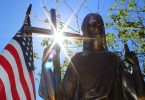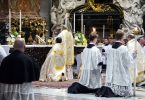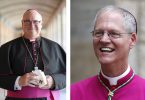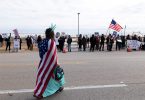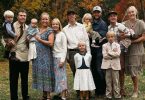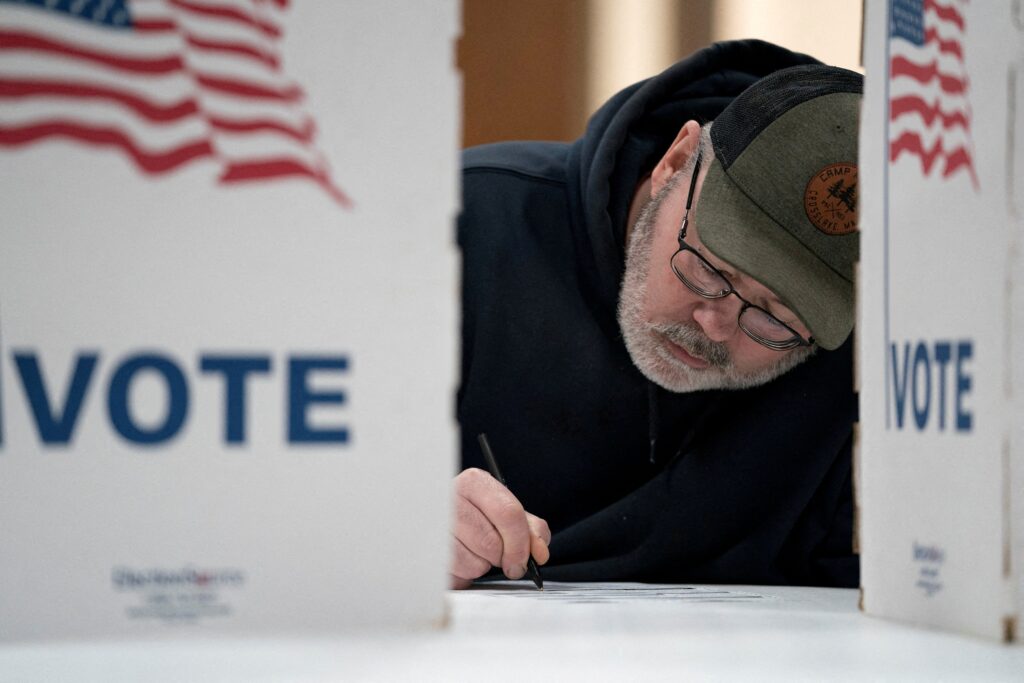
by Kate Scanlon, OSV News
WASHINGTON (OSV News) — As Americans prepare for the November elections, some Catholic groups are circulating checklists designed to help voters discern their choices at the ballot box.
At their fall 2023 general assembly, the U.S. bishops voted to approve supplements to the bishops’ teaching document “Forming Consciences for Faithful Citizenship,” which consisted of a new introductory note that affirmed the bishops’ prior designation of abortion as “our pre-eminent priority” because “it directly attacks our most vulnerable and voiceless brothers and sisters and destroys more than a million lives per year in our country alone.”
But sometimes Catholic voters wonder how to apply those principles at the ballot box. Two groups recently released checklists to help them discern those choices.
Catholic Conscience, a nonpartisan civic engagement organization, published “A guide for Catholics (and others of good will)” about platforms and policies offered in federal U.S. elections. Meanwhile, Network, a Catholic social justice lobby, is urging Catholics to be “Pope Francis Voters” or multi-issue voters.
Network unveiled the first phase of “Vote Our Future,” its 2024 election education campaign in May, part of which is the “Pope Francis Voter Pledge,” which seeks to commit as many people as possible to multi-issue voting.
Meg Olson, grassroots mobilization manager for Network, told OSV News that part of its campaign is promoting the group’s “equally sacred checklist,” a list of key issues it wants Catholics to consider at the ballot box, which she said was inspired by Pope Francis.
Olson pointed to a portion of what the pope wrote in “Gaudete et Exsultate” (“Rejoice and Be Glad”), his apostolic exhortation on “the call to holiness in today’s world,” as guiding their effort.
In that document, Pope Francis wrote, “Our defense of the innocent unborn, for example, needs to be clear, firm and passionate, for at stake is the dignity of a human life, which is always sacred and demands love for each person, regardless of his or her stage of development. Equally sacred, however, are the lives of the poor, those already born, the destitute, the abandoned and the underprivileged, the vulnerable infirm and elderly exposed to covert euthanasia, the victims of human trafficking, new forms of slavery, and every form of rejection. We cannot uphold an ideal of holiness that would ignore injustice in a world where some revel, spend with abandon and live only for the latest consumer goods, even as others look on from afar, living their entire lives in abject poverty.”
Olson said the pontiff’s framing “really captured our imagination, that these issues are all equally sacred, (and this) has been guiding our election, our voter engagement, and education work since 2020.”
Network’s “equally sacred checklist” calls on voters to support candidates who “promote the common good,” and highlights issues including access to health care, a healthy planet, a thriving democracy, and immigration policies that protect asylum-seekers and a path to citizenship.
Asked how Catholics could discern their vote between candidates for federal or state offices whose platforms include policy positions that may run contrary to Catholic social teaching, Olson replied that no candidate is perfect, but Catholics should equip “people to look through this checklist and think about all of these issues.
“It really is by thinking about what issues you care about the most deeply and knowing that they’re all interconnected,” and making sure “they all support the dignity of the human person,” she said.
Matthew Marquardt, executive director of Catholic Conscience, told OSV News that their voter “consists largely of analysis of party platforms and policies, putting them side by side against Catholic social teaching.”
Catholic Conscience offers voter guides for Catholics in several countries – including the U.S. and Canada. The organization’s U.S. federal election 2024 guide is a comprehensive critique of the policy positions of major and minor political parties on a wide scope of issues including abortion, immigration, and steps to address poverty.
“It’s very seldom that any parties or candidate platform completely coincides with the social teachings of the church,” Marquardt said, adding there are often “things that are difficult to reconcile with what the church teaches.”
“The point is that being a Catholic citizen, you’re supposed to understand what the options are and then inform yourself, and pray about it, and do the best you can to be engaged,” Marquardt said.
Humility of Mary Sister Eilis McCulloh, Network’s grassroots education and organizing specialist, told OSV News the group’s new Young Advocates Leadership Lab also seeks to connect first-time or other young voters with information about registering to vote and being engaged in the political process.
She said, “It’s been really inspiring for me to hear them talk about the issues that matter, how excited they are to be a part of democracy, to have the opportunity to vote.”

